Simulators Track our Changing Relationship with Technology
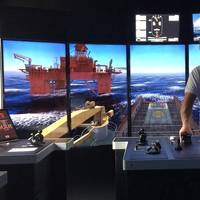
Simulation-based training has its whole-of-ship/whole-of-team scenarios, but zooming in, the industry is now working on more specific targets.We have a close relationship with technology, evidenced by, for example, the phones we are estimated to unlock around 50-80 times a day. It has changed us. Half the people surveyed in a 2022 King’s College London study said that they feel like their attention span is shorter than it used to be. They are wrong, though, if they think that the average attention span of adults today is just eight seconds, one second less than goldfish.
Simulators Track our Changing Relationship with Technology
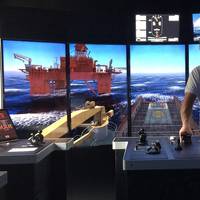
Simulation-based training has its whole-of-ship/whole-of-team scenarios, but zooming in, the industry is now working on more specific targets.We have a close relationship with technology, evidenced by, for example, the phones we are estimated to unlock around 50-80 times a day. It has changed us. Half the people surveyed in a 2022 King’s College London study said that they feel like their attention span is shorter than it used to be. They are wrong, though, if they think that the average attention span of adults today is just eight seconds, one second less than goldfish.
R&D Project Targets Better Gangway Operability
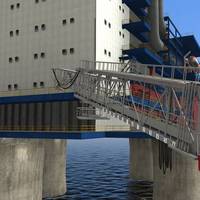
Kongsberg Maritime is working with Norwegian shipping company Østensjo and the Norwegian Marine Technology Research Institute (Marintek) on a new research and development project for operations using motion compensated and telescopic gangways, typically found on accommodation vessels in the offshore sector. The project is part of the Norwegian Government’s innovation program MAROFF (Maritime Activities and Offshore Operations). Accessing any fixed or floating offshore structure via a vessel can be challenging due to the movement against the structure…
Kongsberg Maritime Launches K-Sim Navigation
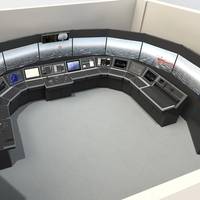
Kongsberg Maritime has unveiled its latest generation ship’s bridge simulator, K-Sim Navigation, which meets the requirements of the most demanding navigation training for merchant, offshore and naval vessels. Designed for the future of advanced and integrated simulation training, K-Sim Navigation is based on a new cutting-edge technology platform enabling more realistic training scenarios and enhanced user benefits for both instructors and students. K-Sim Navigation features an advanced physical engine and state-of-the-art hydrodynamic modelling…
Kongsberg, Vestfold University Simulator R&D
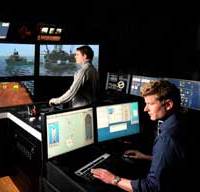
Kongsberg Maritime's simulation division and Vestfold University College has signed a framework agreement to further explore activities and projects of joint interest within research and development of maritime simulators from an innovation and human factor perspective. The agreement which was signed 22nd December 2010 comprises extensive R&D project plans and the use of an Interactive Simulator Laboratory (SIMSAM lab) at Vestfold University College, which will serve as a R&D facility. The agreement will include several R&D projects involving maritime simulators in different aspects.
Kongsberg Forms Research Group to Optimize Simulator
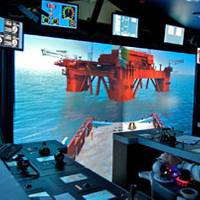
Kongsberg Maritime AS, Simulation & Training has made an agreement with the Research Council of Norway to form a user-directed research program called SIMAR - Simulation of Demanding Maritime Operations - which is aimed at improving simulation training by enhancing focus on human factors. The main goal of the research project is to obtain new and improved knowledge of human factors in a learning environment based on simulated complex maritime operations, in order to develop a new generation of research based, maritime simulators for demanding and risky operations, e.g.





